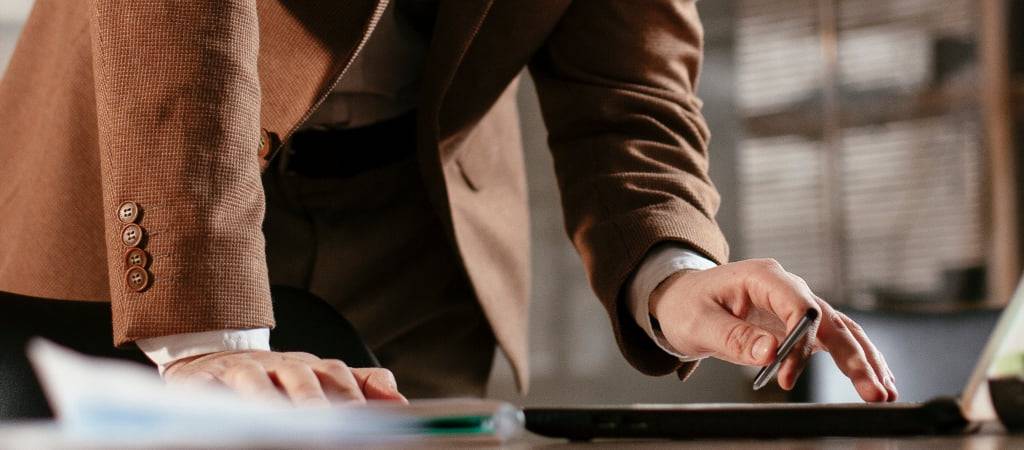Questions and answers about the state of emergency Spain

Spain is currently in an unprecedented state of emergency. Although there was also a state of emergency in 2010 due to the wild strike by air traffic controllers, this cannot be compared to what is going on in 2020. Since Saturday evening, all Spaniards have to stay indoors and there is a large restriction on freedom of movement. This applies to the Spaniards but also to all foreigners who are located in Spain, including in the Canary Islands and Balearic Islands. But what is allowed and what is not allowed. We try to explain it.
Spain has declared the 'estado de alarma', a 'state of alarm' or 'state of emergency'. The reason for this is the coronavirus and its rapid spread. By limiting the freedom of movement of everyone in Spain (residents and visitors) for at least 15 days, the government hopes (in line with China and Italy) to limit the spread and counteract it to ensure that the health system does not collapse by a too much demand and to prevent more people from becoming infected and in the worst case dying.
Are the borders closed?
No, the borders with France, Portugal and Andorra are open and you can go to another country from Spain.
Are the airports closed?
No, the airports remain open for passenger and freight traffic. Air traffic will be cut in half, which will of course affect all flights, including those going to or coming from the Netherlands and Belgium. Information about the state of the airports can be found on the Aena.es website. In addition, keep an eye on the websites of the airlines.
Can I travel on public transport?
Yes, but only that is strictly necessary. This applies to aircraft, trains, ships, buses within and outside built-up areas, etc. The capacity of all transport will generally be reduced by 50%.
What about air travel to the Netherlands / Belgium?
Airports are open but flights will be halved from probably Tuesday. Chances are that airlines will cancel or adjust flights. To do this, please contact the relevant airlines. Information about the state of the airports can be found on the Aena.es website. (ATTENTION: airlines can cancel flights to Spain. Ryanair has already started sending SMS and e-mails. Other companies are not yet aware of this. Several Dutch travel organizations have stopped their trips and will start in the course of the week. Spain pick up resident travelers.)
Can I take someone to the airport?
Not completely clear. We try to find an answer to that, but that is difficult. The use of roads is only permitted if strictly necessary or for work. In addition, one may return to the place of residence. However, there is nothing written in the text about taking family or friends to the airport. At the moment that is a big unknown. We are trying to figure it out.
I am on holiday in Spain with the camper / caravan, can I return?
In the text of the state of emergency, nothing is written about the driving of foreigners who want to return to their own country. We have heard from readers that they have completed their journey by road without any problems with the passenger car, camper and / or caravan. There was a lot of freight traffic on the road, few passenger cars but police who did not say anything. On the way, keep in mind that at least in Catalonia many hotels are closed along the highway, that the gas stations are open but all facilities such as restaurants, bars and sanitary facilities are closed. Respect the hygiene regulations to prevent the virus from spreading during your return journey.
Are the hotels or campsites closing?
Hotels, campsites and other accommodations do not have to close, they can be left open to guests. If hotels and other accommodations close or are already closed, it was the owner's own decision. The reason may be that there is a huge drop in reservations and tourists. The restaurants in the hotels may remain open to the guests present. Whether the bars can also remain open is not certain. The Paradores chain has indicated that they will no longer take reservations and will close without immediately putting the guests present on the street.
Can you go on the street?
Yes, but only if absolutely necessary. That is, if you have to go to the supermarket or if you have to visit a pharmacy, bank or hospital and doctor. In addition, you can be on the street to go to work, but everyone is advised to do telework (teletrabajo).
Can the police ask me why I'm on the street?
Yes, the police have the power to ask anyone why they are on the street. If one cannot account for himself, then the police may give heavy fines. The instructions of the police must be followed at all times.
Can I walk the dog?
Yes, you can go on the street to walk the dog, but only for short walks, so no long walks. In addition, only one person can go outside at a time. You should also maintain the safety distance of at least 1 meter if you meet other people.
Can I run or cycle?
No, you can only be on the street if absolutely necessary. Going for a round of cycling or running is not part of that, even if you go into the forest. Walking in nature like in nature parks is also not allowed. Staying in the house is staying in the house, quarantine is not a holiday.
Can I take a walk on the beach or the boulevard?
No that is not allowed. You may only be on the street if there is a good reason for it. Taking a walk is not a good reason and the police can demand that they return home. The police can possibly issue fines if you are on the street.
Can I take the children to a children's playground?
No, these are closed all over Spain. It is also very irresponsible to take children to public places where they can be infected.
Can I drive on the street by car?
No, only if this is strictly necessary, for example to drive to the supermarket, pharmacy, hospital or doctor or gas station. The police can check traffic and ask why they are on the street. In addition, roads can be closed if deemed necessary for health or safety reasons.
Can one return to the place of residence?
Yes, the text mentions 'regresa a la residencia habitual' or the place of residence. This has to do with people from some areas who decided to go on holiday to the coast or the mountains during the measures previously taken. They may return to their home. This also applies to Spaniards who are abroad and return to Spain.
Are holidaymakers allowed to return home by road?
Not completely clear. As the text describes, you can only be on the street and on the roads for a good reason and you can return home. The question is, does this also apply to foreigners who, for example, are on holiday in Spain with a camper or caravan or with their own transport? We have heard from readers that driving a motorway on your way to your own country with a car, camper or caravan is no problem.
Which shops etc. can remain open?
Only supermarkets, shops for food, drink, essential goods and products, bakers, pharmaceutical, medical, optical and orthopedic institutions, hygiene products, press and stationery, petrol stations, tobacconists, technological and telecommunication equipment, pet shops, internet sales, dry cleaners and laundries, post offices and banks may remain open but one must avoid that too many people are together where everyone should keep at least one meter apart.
Why are hairdressers and dry cleaners / laundries open?
That was the question of everyone after the measures were announced. UPDATE: After the hairdressers have complained about being open during the state of emergency, the government has decided to close the hairdressers. Elderly people and people with mobility problems to cut their hair or wash their heads can be helped in their own home. Why dry cleaners and laundries? Because they have a fundamental task in cleaning and hygiene for hospitals and other care centers in Spain.
Is the supply of supermarkets guaranteed?
Yes, the government guarantees the supply of supermarkets. These will also always remain open, with opening times more flexible in some autonomous regions. So there is no reason to hoard because supplies are guaranteed.
Are bars, restaurants and terraces open?
No, all bars, restaurants and terraces must be closed throughout Spain. The bars and restaurants in hotels and apartment complexes (?) May be open. Offering drinks and / or eating in shops is not allowed (to avoid being used as makeshift bars / restaurants).
Are the sights in Spain open?
No, all sights, museums, monuments, nature parks, city parks and in many places the beaches are closed. So if you want to go to the Alhambra, churches, Sagrada Familia, Park Guell, Retiro Park or similar, these are closed. The cinemas, theaters and libraries throughout Spain are also closed.
How about working in Spain?
Everyone may be on the road to go to work if the companies are not closed. However, employers are advised (not required) to introduce telework (teletrabajo) for all employees, if possible. In order not to completely freeze the economy in Spain, everyone can go to work.
Can I go to church, funeral or wedding?
Yes, but with many limitations. Participating in a Christmas, funeral or wedding is limited to fewer people and the minimum safety distance of one meter must be observed.
Are the schools open?
No, all schools are closed from today until at least the end of March. This applies to normal schools, universities and nurseries or childcare centers. the children's playgrounds at the schools are also closed. It was said in several newspapers that the canteens are open for meals because some people in Spain are very dependent on them. Whether that is true and in which parts of the country that applies is not known.
What is the task of the police?
All police units (policia Nacional, Guardia Civil, Policia Local, Policia Municipal, Guarda Municipal) are under the direct administration of the Minister of the Interior (also the Catalan Mossos d'Esquadra and Basque Ertzaintza) and can act if required, oblige people in stay at home or not on the street and can take measures if orders are not followed. Agents may issue fines and close roads if necessary.
What is the duty of the army if it is deployed?
The Spanish government has access to the Spanish army that can be deployed if necessary. If they are to take office, the military will only take over the duties of police officers because there is no security for the country against an attack from abroad. On the first day of the state of emergency, the Spanish army sent the UME Mobile Emergency Unit to various cities. According to the Minister of Defense, more cities will be added in the course of the week.
What happens if I don't follow the rules?
That is a criminal offense. That is to say, the police can issue fines and, if necessary, (if necessary) arrest people. This is based on article 10 of the 'Ley Orgánica 4/1981, the 1 de junio'. That article / law describes what happens during an 'estado de alarma' such as this emergency. That article / law does not specify how high fines can be. However, this is stated in the 'Ley de Seguridad Ciudadana'. Fines can range from 601 to 30,000 euros for disobedience.
source: Spanjevandaag.com






